Tehran(Bazaar): Russia and Iran will continue to benefit from the NSTC irrespective of whether India decides to play a major role in this project once again or not, Andrew Korybko tells Bazaar in an exclusive interview.
Noting that Iran might comparatively lose out on more trade with Afghanistan (especially because it's unlikely to facilitate as much of India's with the region as it previously expected due to recent events), He believes that the Islamic Republic can optimistically compensate for this by facilitating more Chinese trade with West Asia by leveraging its connections in those latter countries to complement its 25-year strategic partnership with the People's Republic and Beijing's promise of full economic support to Damascus.
Korybko is an author, senior, journalist and faculty member at the Institute for Strategic and Futuristic Studies at the Russian Friendship University. A Moscow-based American political analyst specializing in the relationship between the US strategy in Afro-Eurasia, China's Belt & Road Initiative, and Hybrid Warfare.
Following is the text of the interview:
Bazaar: The last week of 2020 was accompanied by a major and significant event in the rail transit industry of the West Asian region, which was the signing of a joint memorandum between Pakistan & Uzbekistan to build the Pakistan-Afghanistan-Uzbekistan railway. Three countries, Pakistan, Afghanistan and Uzbekistan, have signed a memorandum of understanding to build a railway line that will allow Central Asian countries access to warm southern waters through Pakistan and Afghanistan. So, the North-South Transport Corridor (NSTC) transit route of Iran will lose much of its importance. On the other hand, Iran and Russia also participate in the NSTC, so how do you assess everything ?
Korybko: I disagree with the prediction that the NSTC will lose much of its importance, though it will lose some of it. The NSTC isn't just about Russia, Azerbaijan, and Iran, but also those three and India, the latter of which originally intended to rely upon it as an overland trade corridor to Europe as well as Central Asia via Afghanistan. Be that as it may, New Delhi ended up complying with Washington's unilateral sanctions regime against Tehran out of fear of so-called “secondary sanctions”, which essentially led to the project being frozen until the present day. Afghanistan's decision to join what I've previously described as the PAKAFUZ project (named after the first letters of the three participating countries) will reduce Kabul's interest in and subsequent reliance on the NSTC for accessing the Indian Ocean and thus the broader global economy.
India can still at least in theory use the NSTC in the event that it decides to revive the project upon the possible easing of the US' anti-Iranian sanctions as part of a comprehensive renegotiation of the nuclear deal, but it won't ever be as important to New Delhi's Central Asian outreach strategy as before seeing as how Afghanistan no longer has as much of a need for it. The South Asian state can also use the project to trade more with Russia, though it's unlikely to ever fulfill its initial expectation of ultimately becoming a grander EU-Indian trade corridor. This is mostly because there's now a proposal for India to participate in something that I've previously described as the “Trans-Arabian Corridor” (TAC) across its new GCC, Jordanian, and “Israeli” allies' territories in order to reach the EU, which is more geographically efficient than using the longer NSTC for that same purpose
The end result is that the NSTC will likely only be used to facilitate Indian-Iranian trade first and foremost, and only then Indian-Russian trade. The latter will probably soon be focused more on the Arctic and Far East in the coming future since India has more of a strategic interest in expanding its economic influence there as a means of competing with China in a “friendly” way in Beijing's own “backyard”.
Since India is unlikely to ever regain its strategic edge when it comes to Central Asian connectivity after voluntarily sacrificing the NSTC over the past few years due to American sanctions pressure and thus inadvertently compelling Afghanistan to agree to participate in PAKAFUZ as the only reliable means left for this landlocked country to access the Indian Ocean, it'll probably concentrate more on other connectivity initiatives instead like TAC and Russia's Arctic & Far East.
Nonetheless, Russia and Iran can still rely on the NSTC to enhance bilateral trade between themselves as well as with their neighboring Azerbaijani partner, especially since Baku is pioneering a six-country regional integration platform after its victory in last year's Karabakh War. If successful, then Russia, Iran, Turkey, and the three states of the South Caucasus will be more closely integrated in a regional economic community that will put some of the existing NSTC investments to good use.
The NSTC will therefore probably reduce its scope from the grander EU-Indian trade corridor that it was initially envisioned as becoming to a more regionally concentrated one focused on Azerbaijan's six-country integration platform. Russia and Iran will thus continue to benefit from the NSTC irrespective of whether India decides to play a major role in this project once again or not.
Bazaar: Some experts believe that Russia is strategically interested in developing the NSTC to its maximum extent in general with access to Iran and in particular to the port of Chabahar and then to Pakistan, India and ASEAN as well the Persian Gulf and the Indian Ocean Region (IOR). The Russian side is even more likely to oppose the Tashkent, Kabul and Islamabad projects than Beijing. The Uzbek-Afghanistan-Pakistan railway project is in direct conflict with China's interests in pursuing trans-Afghan transportation projects under the One Belt One Road program. These Chinese projects are mainly bypassing the territory of Uzbekistan and aim to diversify the flow of goods. However, Beijing has not yet entered the practical stage, given the real situation in Afghanistan. What is your opinion and evaluation?
Korybko: With all due respect, I completely disagree with every presumption contained within this question and would like to comprehensively clarify how I view the evolving situation. I already explained in my prior answer how Russia could still utilize the NSTC despite India's de facto abandonment of this project and Afghanistan's newfound reliance on PAKAFUZ as its preferred outlet to the Indian Ocean.
Moreover, with that vision in mind, it can still be used to facilitate Moscow's economic connectivity with the Persian Gulf, the IOR, and ASEAN, though the Eurasian Great Power will likely end up diversifying its access routes to these regions as well.
To explain, its predominant role in Syria enables it to eventually extend economic influence throughout the rest of West Asia with time and upon the Arab Republic's full reconstruction (dependent as it is on the easing of American sanctions which don't seem likely anytime soon). As for the IOR, Russia can simply participate in PAKAFUZ since it'll ultimately connect with Russian railways in Central Asia.
Concerning ASEAN, Russia is pioneering the Vladivistok-Chennai Maritime Corridor (VCMC) with India, which will enhance both of their connectivity potential with ASEAN seeing as how that region lies in the middle of this new trade route. Some additional insight must be shared about Russia's stance towards PAKAFUZ in order to clear up any misperceptions from the Iranian side.
Russia isn't opposed to this project at all but is fully supportive of it both because it'll help Afghanistan's post-war reconstruction by providing new economic opportunities to its citizens as well enhance the Eurasian Great Power's overland trade potential with South Asia.
Furthermore, PAKAFUZ will strengthen the rapid Russian-Pakistani rapprochement of recent years and essentially represent a 21st-century fulfillment of the Old Cold War-era Kosygin Plan for a Soviet-South Asian trade corridor.
As for China, it also isn't opposed to PAKAFUZ at all, as proven by last week's trilateral Foreign Minister's meeting between its own top diplomat, Afghanistan's, and Pakistan's that was held in a virtual format this year because of COVID-19.
Kabul agreed to work more closely with Islamabad, especially via Beijing's Belt & Road Initiative (BRI), which basically means that PAKAFUZ can be regarded as the northern branch of BRI's flagship project of the China-Pakistan Economic Corridor (CPEC), N-CPEC+. I've written a lot about this promising trade corridor over the years and anyone can do a simple search with my name and N-CPEC+ to read my work on it.
Regarding its broader BRI plans, there's no doubt that the People's Republic plans to incorporate the Islamic Republic into this pan-hemispheric series of megaprojects after the 25-year strategic partnership agreement that was recently agreed to by both of them. In practice, this can see CPEC extended westward via the W-CPEC+ vision that I've also written extensively about in the past, as well as through the China-Central Asia-West Asia Economic Corridor (also simply known as the Central Asian Silk Road) that has yet to be built but would undoubtedly traverse through the territory of Uzbekistan, which is the region's most populous country.
It's therefore inaccurate to assess that PAKAFUZ is in any way against Russia's, China's, or Iran's interests. The only argument that can be made in this respect is that Iran might play a less important role in facilitating Afghanistan's trade with the outside world seeing as how Kabul openly prefers to rely on PAKAFUZ for this purpose instead of the NSTC, but this is due more to India's decision to comply with the US' unilateral sanctions regime against Iran which compelled Afghanistan to make this decision than any fault of Tehran's own. In fact, Afghan-Iranian trade can still occur via the parts of the NSTC that have already been built between them.
Another point that deserves mentioning is that while Iran's trade potential with Afghanistan might be somewhat more limited in the future due to Kabul's increased reliance on PAKAFUZ over the NSTC, Tehran can in theory compensate for this by pioneering more trade with the West Asian nations of Iraq, Syria, and Lebanon. This isn't just a generic proposal either but a very promising one in practice ever since Chinese President Xi sent his recent telegram to Syrian President Assad promising full support for the Arab Republic's reconstruction after its latest elections.
Keeping the recently clinched 25-year Chinese-Iranian Strategic Partnership deal in mind and remembering Iran's influence within these three countries, it's possible that Tehran can open up important economic doors there for Beijing which could result in the expansion of W-CPEC+ all the way across those West Asian nations.
The combination of Iranian connections and Chinese investment could revolutionize this part of the continent by accelerating its reconstruction and development, which is especially important for Iraq and Syria considering how devastated their economies have been due to years of war.
Altogether, while Iran might comparatively lose out on more trade with Afghanistan (especially because it's unlikely to facilitate as much of India's with the region as it previously expected due to recent events), the Islamic Republic can optimistically compensate for this by facilitating more Chinese trade with West Asia by leveraging its connections in those latter countries to complement its 25-year strategic partnership with the People's Republic and Beijing's promise of full economic support to Damascus.
This could result in game-changing geopolitical consequences that might even further reduce American influence there with time too.







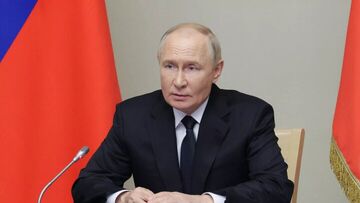
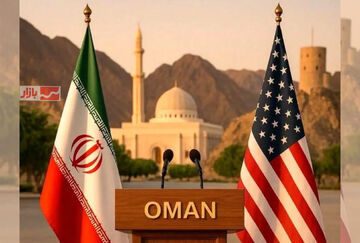
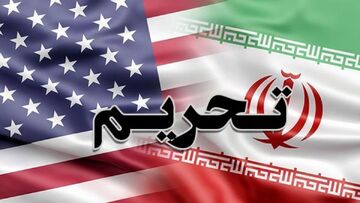
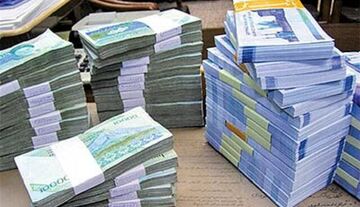


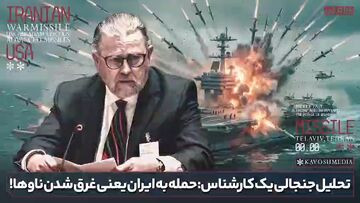

نظر شما